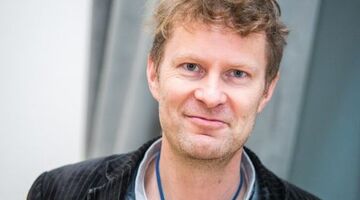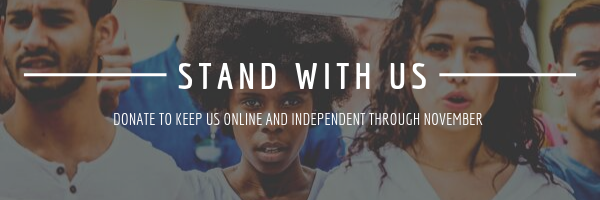Last week there were a flurry of headlines from more centrist media spaces claiming that allegations about the Russian government actively helping Donald Trump take the White House in 2016 had finally been proven. The ‘proof’ first appeared in a July 15th story by a British reporter, Luke Harding, who based it on documents that we’re meant to believe came from high level contacts in either the British or American intelligence communities.
The documents, which Harding claimed were labelled ‘secret’, are said to detail a closed meeting that took place in January, 2016 and included President Vladimir Putin and his national security council. Also in the trove was at least one other document that the reporter assured readers shows that Russian intelligence hacked the DNC emails made public by Wikileaks the same year.
Oddly, either the reporter himself or the Guardian, which is Harding’s main employer, didn’t include the documents themselves but just small (untranslated) excerpts of them, making it difficult if not impossible for even Russian language experts to appraise their authenticity.
The meeting was the subject of a press release that the story, to its credit, links to (although I had to translate it with Google Translate), which said the discussion was focused on the Russian economy and the situation in nearby Moldova, where a Kremlin friendly candidate had won the presidency a few months before. Harding claims his documents show that this was a ruse and these leaders were actually discussing Donald Trump’s “impulsive, mentally unstable” personality and their plans to help him win office.
Harding is the author of a best selling book, “Collusion” which, as Consortium News’ editor, Joe Lauria recently noted, told the story of Christopher Steele’s inquiries in Russia about the soon to be U.S. president. The former MI6 asset’s ‘dossier’ on Trump’s supposed Kremlin ties was shown to be “opposition research”, meaning its contents are composed as much of rumors as facts, by the Mueller investigation. This had to be an embarrassment for a well known Guardian reporter who staked his reputation on the former MI6 asset’s work.
Lauria also noted how helpful Harding’s story is to U.S. intelligence, as it almost exactly follows the narrative the community and its media cheerleaders promoted after the 2016 election, while also conveniently proving their suspicions about the DNC hack.
Not only does Harding not name those who provided him the trove of Russian documents, which is pretty standard for this kind of national security reporting, he doesn’t provide the names or credentials of the Russian speakers he says vouchsafed for their authenticity, only referring to them as “independent experts”.
Further, as Douglas London, a retired senior CIA officer who teaches at Georgetown University’s Center for Security Studies put it, “While I’m certain that Putin played Trump like a fiddle and directed a multifaceted campaign to influence US opinion, sow chaos and support his candidacy, I find the timing and extraordinary level of detail in these ostensibly highly classified reports curious.”
Going on to say, “…Coincidence and convenience are red flags in espionage. So why now? And how would any beyond Putin’s most inner circle have access? Why would they wait until now to share these documents? And why wouldn’t they have cut a lucrative deal by defecting and/or cooperating in place with a Western Intelligence service—or defect and go public with a huge expose and book deal?”
As London points out, it’s fairly certain that the Russian Federation did try to influence the 2016 election and were lucky in that Trump was already enamored with Putin’s authoritarian rightwing ‘populist’ style of leadership. It’s also true that Russia and many other countries from allies to rivals have tried to influence American elections before and will continue to do so in the future. An argument can be made that an Australian oligarch, Rupert Murdoch, was much more successful in using his platforms to help elect the reality TV star to office and to sow the ‘dissension’ that Harding sees emanating from the Kremlin rather than the American rightwing.
Further, just this week, Tom Barrack, a close ally of the former president, was arrested for allegedly illegally lobbying for the oil rich despotisms of the UAE, which may not have tried to influence U.S. elections but are believed to have driven U.S. policy in the Middle East during the last administration. This has had a much higher toll than any Russian meddling in innocent lives, especially if one cares about the humanitarian crisis in Yemen.
What has been proven to some degree are attempts by Russian actors to sway different groups in the United States using the internet and social media. Besides questions about how effective these interventions were there is at least some official distance between private entities like the billionaire owned Internet Research Agency (IRA) and the country’s government. Having said this, history is littered with examples of intelligence agencies using private businesses as fronts for their operations, so the idea that the IRA could have Kremlin ties can’t be entirely dismissed.
Still, the hysterical reaction of the U.S. mainstream press and cable networks to the idea that another country, still viewed by many as an enemy, would attempt to influence an American election seems incredibly naive and displays breathtaking ignorance of their own country’s history of much more successfully doing this exact same thing around the globe.
Back to Harding, it’s important to see that, besides being a major cheerleader for the ongoing Russiagate saga that’s a house of cards built on assertions that are impossible to prove, he previously distinguished himself as both one of the main beneficiaries of and later critics of Wikileaks and Julian Assange, who remains in Belmarsh prison as the American government appeals a UK court’s decision to not allow his extradition.
Harding and his co-author David Leigh claim in their 2011 book, published by The Guardian, “Wikileaks: Inside Julian Assange’s War on Secrecy” that the publisher wasn’t concerned with redacting the names of individuals in the military and diplomatic documents provided to the group by Chelsea Manning. This has been refuted by a number of people who know Assange, including John Sloboda of the group Iraq Body Count, who told a U.K. court under oath that he worked with the publisher on these redactions himself. Worse, the authors also put the password for the unredacted documents in their book, allowing them to leak online soon after, which, to be fair to Harding, Wikileaks blamed on Leigh at the time.
The reporter’s involvement in the persecution of Assange alone would be enough to make people question his honesty, but when added to what we now know is dubious reporting in his later book, “Collusion”, we might want to take his most recent reporting on Russiagate with a grain or two of salt. It may just be that working with those who lie for a living has had an impact on Harding’s standards or it could be he needs these anonymous official sources as much if not more than they need him.
 RSS Feed
RSS Feed















 July 24th, 2021
July 24th, 2021  Awake Goy
Awake Goy 

 Posted in
Posted in  Tags:
Tags: 













